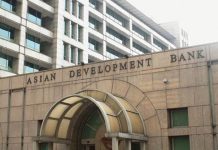ISLAMABAD: Beyond crypto and digital assets, blockchain presents a massive opportunity for Pakistan’s digital economy with use cases across industries from supply chain to logistics, where a decentralised network can speed up processes and bring in transparency.
According to a report of Pakistan Software Export Board (PSEB), blockchain is contributing to different fields of technology in Pakistan. The Securities and Exchange Commission of Pakistan (SECP) has inducted two startups working on the tokenisation of real estate into its regulatory sandbox. In a similar vein, it published a concept paper on asset fractionalisation with the aim of bringing transparency and encouraging formal investment into the real estate sector.
Since then, a number of startups, such as xState, have come to the fore trying to solve this problem. Similarly, some startups have entered the non-fungible tokens (NFT) space, such as Rare Sense, which lets celebrities – such as actors, cricketers, among others – monetise by selling experiences to their fans through blockchain.
According to a working paper by the Atlantic Council, the country can realise up to $109 billion in earnings over the next 20 years by harnessing its talent to remotely work for leading blockchain companies globally. One area where both regulation and industry have made considerable progress is the fractionalisation of real estate.
The PSEB report says that gaming studios have entered the foray as well, producing play-to-earn games by leveraging blockchain technology, such as The Gamestorm Studios, which recently announced that two web 3.0 games were in the pipeline.
The government has also started adopting blockchain technology in different industries. For example, the National Freight and Logistics Policy makes the promotion of blockchain part of its pillar, through which record management and trade finance can be optimised.
The report says that to showcase the developments in the blockchain ecosystem, Binance (cryptocurrency exchange) in collaboration with COLABS (workspace) also organised a Web 3.0 Summit in June 2022, where leading companies discussed the trends and potential Pakistan could harness by leveraging the blockchain technology.
Pakistanis seem to have been bought into the cryptocurrency race, as the country ranked third on Chainalysis’ Global Crypto Adoption Index 2021 – only behind Vietnam and India – with an estimated traded value of over $20 billion between July 2020 and June 2021.
Another report from the same organisation suggests that Pakistanis realised crypto gains of over $604 million in 2021. Other indicators, such as traffic to leading crypto related websites or major exchanges among the top charts on the Google Play Store, confirm the uptake.
The PSEB report says that such mass appeal has attracted not only local, but international players to tap into the market. Binance and Binomio have been active for a couple of years with the latter even having its own community management team in the country.
Recently, Bahrain-headquartered crypto exchange Rain Financial appointed its Pakistan manager, while the UAE-based Fasset expressed its plans to expand to the country after raising $22 million Series A, and hired senior leadership. Like other developing countries, trading of crypto assets still faces regulatory uncertainty which limits the options available to Pakistani customers.
For example, all payments on Binance are carried out via p2p transfers, which adds to the transaction charges. A glance across the border reveals a similar trend where massive crypto assets have been volatile due to regulatory changes. Whatever the legal status of digital assets may be, the blockchain technology offers plenty of use cases in other sectors where both the policymakers and industry have made good headway.






